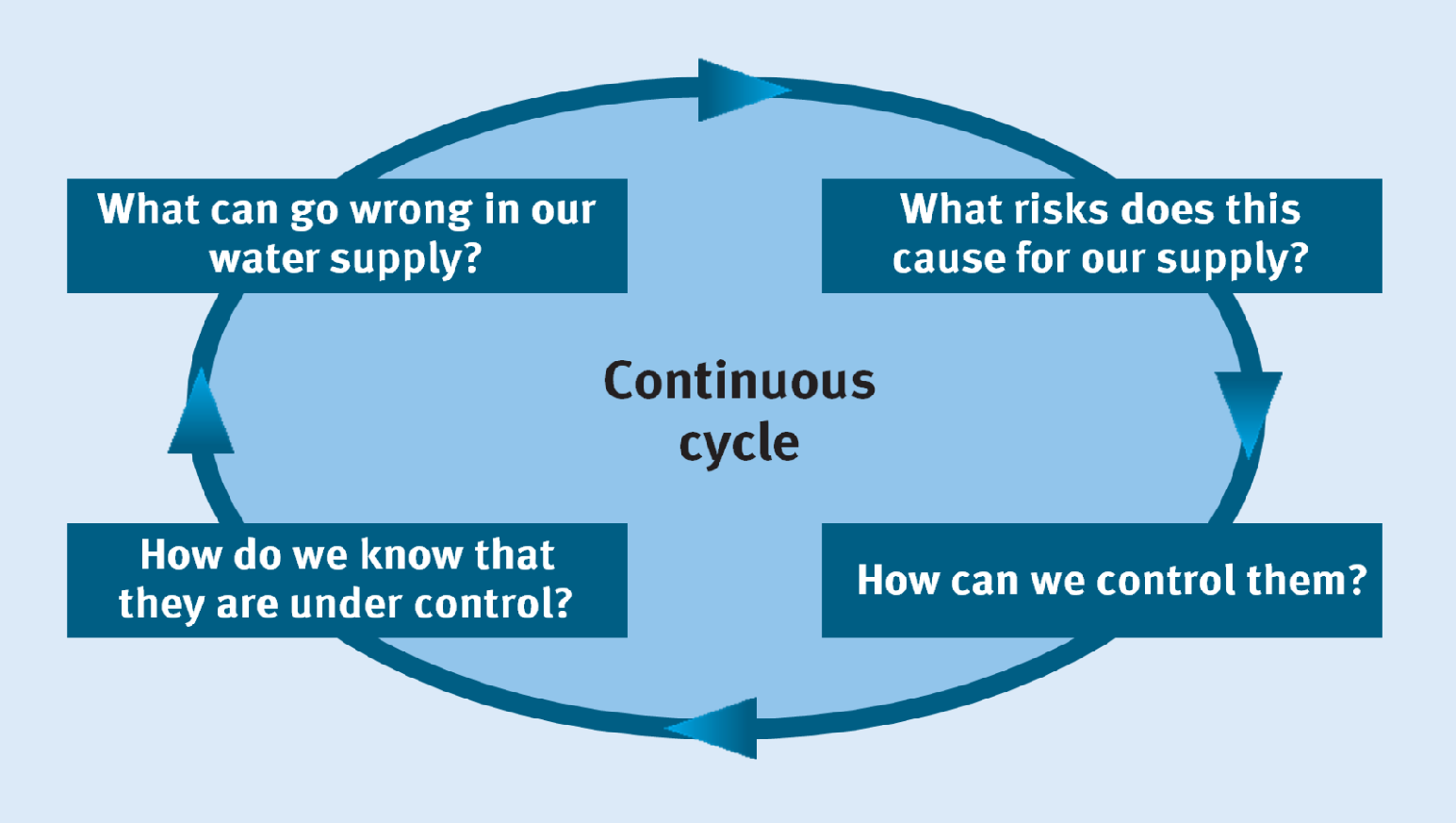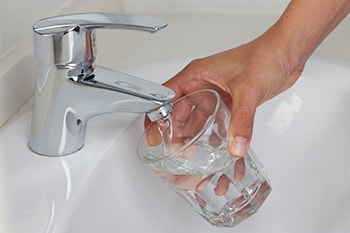Water Systems Study Guide Answer Key
Free Resources: - Great Lakes - Upper Mississippi River Board (GLUMB) standards for designing water, wastewater & sewer systems - Cheat sheets and calculators for water treatment - viewing is free! Roy's Continuing Education Units for WTP/WWTP Operators, good for education and CEUs Water & Wasterwater CEUs for college credit - Study Material for up to Class 4 Wastewater certification - Study Material for up to Class 3 Wastewater certification - Study Material up to Class 4 Water certification - Numerous area-specific subcourses. Officially provided for certified trainers to develop training courses, not for online self-study.
Doing that would be very, very bad. Hi, I've recently taken the California State University at Sacramento (CSUS) Volume 1 and 2 home study courses to qualify for taking the GA class 3 certification exam. At first it seemed that since there are around 2 thousand questions in those courses, studying those questions should be the best way to study for the state exam. But in searching around I found GA class 3 flashcards at: and I don't remember those questions being in either of the CSUS courses. I sure don't want to spend time getting familiar with 2 thousand questions and answers just to find out they're not in the state exam at all. Has anyone taken those courses and the GA state exam and can suggest what someone SHOULD study?
Or if not, does anyone have suggestions about what they think would be best to study, or how to find out what would be best to study? Thank you for any help with this!!! David.
If you're memorizing answers to questions, you're going to have a difficult time. There are a couple of key concepts to understand and that should give you an idea what the answers are. I would know the relationship between FM ratio, MLSS, and sludge age.
If one changes, what do the other two do? How does wasting sludge affect them? Know your settling of sludge and colors of foam in the basins.

Know what indications they give you about sludge age and what issues arise during treatment for each (bulking, pin floc, asking, etc). 40 percent of the Class C in Florida (requires same CSUS course) was secondary troubleshooting. Know the basics of anaerobic digestion and what Va/Alk ratio is. Know the color of the flames.
How to troubleshoot the process. Aerobic digestion is pretty straightforward but know the minimum DO and acceptable Sour. All my chlorination questions were on gas feed, no liquid feed.
3.5 Study Guide Answer Key
Know how the chlorination regulates flow and what problems you can run into (frozen pipe, regulator stuck, etc). Edit: know your state regs. Minimum staffing, reporting operating reports, effluent regs, etc. Infractions that will cost an operator their license. These are NOT in the CSUS course!
Thank you that is very good advice. There's just so MUCH to try to learn.but I have quickly found that understanding is a LOT better than trying to memorize things. In fact I think about that all the time, and that many people probably know all this and the test would be no problem for them. The multiple choice seems most difficult to figure out for me.
Often from my pov it could be all answers, or any combination. Sometimes it seems obvious, but the vast majority of the time I'm unsure about at least one possibility, and that's all it takes to get it wrong. So every multiple choice question is the equivalent of five true/false or best answer questions, from my pov. It's been a while since I've taken my 3 and I didn't take the California course, so I can't say anything about it. I (quickly) looked over those questions and, with the exception of the management questions, they look like they could be useful to study.
You likely won't see any management questions on a Class 3 exam. I would focus on basic plant operational questions, Chlorine gas (tanks and safety), pumps (types, operation and maintenance), light math (calculating tank volumes, areas, chemical feed rates, etc.), general safety, sampling procedures and sample hold times. I wouldn't focus too heavy on lab stuff because you likely won't see much of it until your class 2 exam.
Are you currently working in the field (you'll need at least 3 months experience before getting your license)? If so, your co-worker(s) may be helpful in pointing you in the right direction. Thank you so much; that seems like great advice! I've been working there for over three months, so that won't be an issue. But it's a small membrane plant, so most of the things in the courses don't apply to our plant. The only other person there is the manager and he got his class 3 a long time ago, and he can't advise me much on specifics about the current situation. He has given pretty much the same good advice that you did though, about what to concentrate on trying to learn in general.
It seems like so many details to try to learn that I'm afraid of wasting time trying to learn one huge group of things, when I should be trying to learn some other huge group of things. At least that's how it feels at this point. Thank you again for your help!!! David. I'm glad I could help. I will add that you will want to the learn the basics of the other types of wastewater treatment plants (activated sludge, sequencing batch reactor, rotating biological contactor, trickling filter, lagoon, etc.). There WILL be questions that that will require a basic understanding of at least some of these.
Also, if you are struggling with the math, Don't burn yourself out trying to memorize each formula. Instead focus on what each formula is used for as you will be given a formula sheet (which also contains conversion factors) while taking the test. I understand how overwhelming all of this can seem and wish you the best of luck.
Study Guide A Answer Key

I'm going to try reading through and understanding the chapters related to the things you mentioned specifically, starting with chapter 5 in the first book about sedimentation and flotation. I just read the first section and already recognize and have better understanding of some of the questions. Taking the courses I just tried to find the answers and then planned to try studying for the exam by learning them. Now it seems that's not a good approach. I'd like to have more time now seeing what a task this is, but I've got until September 6 so it might be long enough. Recently in another forum someone said that all of the class 3 exam is multiple choice. I sure hope that's not true, because that's the worst and I was hoping the true/false and best answer sections would help with not getting as many things wrong.
With those sections you have a lot fewer possible ways of getting a wrong answer.
The certified operator career is a very promising field. The US Bureau of Labor Statistics maintains that the average salary for water and wastewater treatment plant and system operators in 2015 was $44,790 USD per year. In general, jobs within the water industry remain relatively less affected by changes in the economy than other industries. The US Bureau of Labor Statistics also notes that the job outlook between 2014-2024 is expected to grow 6%, requiring 7,000 additional operators.
Becoming a certified operator also offers individuals the opportunity to make a difference in society on a daily basis. Clean and safe water is essential to everyday life.
Operators have the ability to regularly impact that need. Training and Education American Water Works Association and the 43 sections across North America have come together to create the One AWWA Operator Scholarship to support continuing education within the water industry. AWWA’s Water Equation matches funds raised at the section level to provide books, tuition, training, education and certification to operators at water and wastewater treatment plants. Recent statistics show that an additional 7,000 water and wastewater operators will be needed over the next decade. The demands for water operators will increase as technology becomes even more complicated. The One AWWA Operator Scholarship is intended as an incentive to increase the number of new operators as well as address the needs of the current workforce. Contact to apply for a scholarship! Achieve your goal of becoming a certified operator with AWWA Membership A few of the many benefits AWWA members receive:.
Solutions Study Guide Answer Key
Monthly Opflow magazine subscription- featuring Certification Corner- a quiz that helps you sharpen your skills to pass your certification exam with ease. Member discounts- up to 33% on training, education, study materials and CEUs once you have passed your exam. Membership in a local Section- connect with other operators- many who are certified themselves- to share best practices and information, and access local education and training opportunities.
Latest Posts
- ✔ Honda City 2012 Manual
- ✔ Mf 20 8 Press Manual
- ✔ Solution Manual For Terry Sincich
- ✔ Xi Std Physics Guide For Common Syllabus
- ✔ 2018 Polaris Ranger 800 Repair Manual
- ✔ 2016 Harley Davidson Tri Glide Service Manual
- ✔ Fresenius 2018t Parts Manual
- ✔ Club Car Powerdrive 3 Charger Manual
- ✔ Briggs Vanguard Carburetor Manual
- ✔ Ms Dos Technical Reference Manual
- ✔ V6 Vz Commodore Service Manual